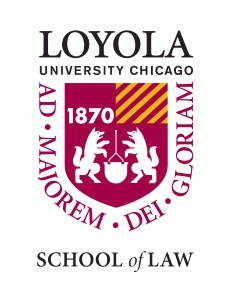This blog is a way for students and faculty to share updates and news about the Education Law and Policy Institute and analysis related to developments in education law and policy. We welcome your comments and feedback!
Miranda Johnson, Clinical Professor and Director of the Education Law and Policy Institute, Loyola University Chicago School of Law
Recent Posts
Reflecting on the 70th Annual Education Law Association Conference: Key Takeaways and Insights, by Jordan Hager & Nate Weaver
On November 6-9, 2024, Loyola University Chicago School of Law Students and ChildLaw Fellows Jordan Hager and Nate Weaver attended and presented at the Education Law Association’s (“ELA”) 70th Annual National Conference in Orlando, Florida. The conference brought together legal … Continue reading
A Crisis In Childhood Literacy: How A Legislative Response Is Bringing Phonics Back To K-12 Education in Wisconsin, by Evan Ploeckelman
How did you learn to read in elementary school? If you went through the K-12 education system within the last two decades, you may have learned to read using a whole language method – learning to read through the context … Continue reading
When Schools Break the Rules: The Legal Implications of Informal Suspensions, by Joyce Harduvel
“Alyssa is having a really tough day and needs you to come pick her up so he can start fresh tomorrow.” This type of call home is a tool that some schools use regularly as a classroom management strategy. Instead … Continue reading
11th Annual Education Law: A Year In Review
By Jordan Hager & Brent Villasenor Loyola University Chicago’s Education Law & Policy Institute hosted over 200 legal professionals, educators, and community members at the 11th Annual “Education Law: A Year In Review” seminar on June 12, 2024. Hosted by … Continue reading
The Book of Revelations: The Future of Religious Schools Post-Carson v. Makin
By: Brenton Villasenor Even if you can, does it mean you should? Many religious school advocates may soon have to answer this question. The Supreme Court’s Carson v. Makin decision in June 2022 was perhaps one of the more significant … Continue reading
Restorative Practices in Schools: “Where are We Now?” Symposium Recap
On April 12, 2024, the Loyola Center on Education Law & Policy, in partnership with Illinois Disciplinary Equity Project and Forest Zafran Consulting hosted numerous educators, administrators, and attorneys for the Restorative Practices in Schools: Where are We Now? Symposium. … Continue reading
Books Behind Bars: The Renewal of Pell Grants for Incarcerated Americans
By: Mary Hornschemeier Bandstra Participating in a college program while in prison has been definitively shown to reduce recidivism, to improve financial outcomes for former inmates and their families, and to save significant taxpayer money. But for nearly thirty years, … Continue reading
Lowering Substitute Teacher Requirements: A Solution to the Shortage
By: Ibtesam Mustafa Teachers are absent for an average of 6% of the school year — this is where substitutes step in. Substitute teachers are critical to a school’s daily operation. They give teachers a sense of security, knowing their … Continue reading
How K-12 Students Can Profit Off of Non-Profits, by Jacob Morales
It is often said that it takes a village to raise a child. Raising and educating children is not an easy task, especially in “villages” where resources for youth are comparatively scarce. To remedy such shortages, students have looked to … Continue reading
Preschool Doesn’t Improve Test Scores: Why That’s Good, by John Groden
Preschool attendance does not actually improve standardized test scores. This recent finding seems to fly in the face of decades of research, advocacy, and common sense. It also calls into question the billions of dollars that federal, state, and local … Continue reading

